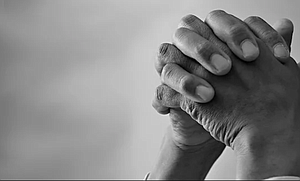4/23/2024

A groundbreaking study by Rice University reveals the complex role religion plays in how employees respond to racial discrimination in the workplace. Scheduled for publication in the upcoming edition of the *Sociology of Race and Ethnicity*, the research titled “Take It to the Lord: Religion and Responses to Racial Discrimination in the Workplace” provides an in-depth analysis of Christian employees' varied uses of faith as a coping mechanism.
The study, led by Rachel Schneider, Director of the Religion and Public Life Program at Rice, and supported by other notable scholars, highlights that Christians of different racial backgrounds interpret and employ their religious beliefs in markedly different ways when confronted with discrimination. Many report using their faith to find strength and resilience, drawing on beliefs in forgiveness and divine sovereignty to manage their experiences. Notably, some Christians of color have found that their faith not only offers personal solace but also empowers them to advocate for themselves and others in the workplace.
However, the study also warns of potential negative consequences when employees rely solely on their faith to navigate workplace challenges. Schneider points out, "Religion can be a source of immense support, but it can also lead to the exploitation of workers. Some may not report illegal or inappropriate behavior, interpreting these trials as religious tests."
The research delves deeper than previous studies by asking how religion impacts perceptions of racial hierarchies and equity efforts within organizations. One poignant example from the study involves a white male who perceived anti-white discrimination when a person of color received a promotion over him. He felt his faith reassured him of a 'bigger plan,' although the researchers suggest this might prevent some individuals from critically assessing workplace dynamics and DEI (Diversity, Equity, and Inclusion) initiatives.
Co-author Bianca Mabute-Louie, a sociology graduate student and research fellow, noted, "In some cases, religious beliefs may reinforce misconceptions about DEI efforts and contribute to a sense of entitlement or victimhood."
This extensive research is part of the larger "Faith at Work: An Empirical Study," funded by Lilly Endowment Inc., and offers new insights into how different demographic groups utilize faith in the face of workplace challenges. It underscores the need for a nuanced understanding of the intersection between faith, race, and workplace dynamics.
As this study is poised to resonate widely, it raises critical questions about the role of personal beliefs in professional settings and the implications for corporate policies and practices related to diversity and inclusion.
For further information on the findings and implications of this study, interested readers can access the full report upon its release in the *Sociology of Race and Ethnicity* journal. This research not only sheds light on the personal coping strategies of individuals facing workplace discrimination but also calls for a broader discussion on how businesses and institutions can better support diverse workforces in culturally competent ways.
For more info, visit Rice University.
